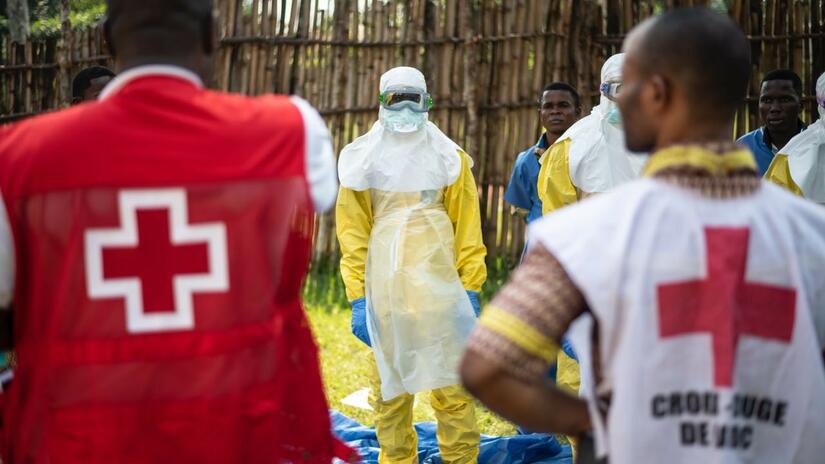Kinshasa/Nairobi/Geneva, 4 May 2019 – The Ebola outbreak in North Kivu is worsening as the death toll surpasses 1,000 on the back of an alarming number of cases reported in recent days across multiple hotspots.
In the past week, 23 cases were reported in one day, the highest since the start of the outbreak in August 2018. Major security challenges and lack of community acceptance of the response continue to hamper efforts to end the outbreak.
Worryingly, many of these deaths are occurring within communities which means that people are not seeking care and treatment in health centres. This is accelerating the spread of Ebola within communities.
Nicole Fassina, Ebola Virus Disease Coordinator with the International Federation of Red Cross and Red Crescent Societies (IFRC) said:
“We are at a critical juncture where we need to step up our support to communities that are facing greater risk of infection, yet Ebola responders face massive security challenges and a lack of resources for the response. An under-resourced operation creates a very real risk of an international spread of Ebola.”
Ebola response activities are costly. Safe and dignified burials are crucial to containing the outbreak. But they are also expensive--costing up to 500,000 Swiss francs a month-- as they require specialized equipment which is often not reusable and must be disposed of after each single burial.
Despite security challenges, Red Cross volunteers continue to carry out safe and dignified burials where possible. Volunteers and other burial teams have responded to more than 5,000 safe and dignified burial requests across North Kivu and Ituri provinces. They have been successful nearly 80 per cent of the time.
“Building community trust takes time and resources, but we have seen the investment pay off when it comes to acceptance of Red Cross safe and dignified burial teams. Since October 2018 the number of safe and dignified burials requested from communities has tripled, and this kind of work needs to continue if we are going to beat this disease,” said Nicole Fassina.
The International Federation of Red Cross and Red Crescent Societies (IFRC) launched an Emergency Appeal to support 15.5 million people to undertake preparedness and prevention work to stop the spread of the disease but has only received just under half the funding required.
IFRC is also supporting localized efforts to keep the outbreak from spreading to Burundi, Rwanda, South Sudan and Uganda. This includes supporting National Societies to mobilize and train volunteers, procure equipment and put in place preparedness measures should the outbreak spread to these countries.
Press release
DRC: Media statement on the end of the 13th Ebola outbreak
DRC: Media statement on the end of the 13th Ebola outbreak
| Press release

